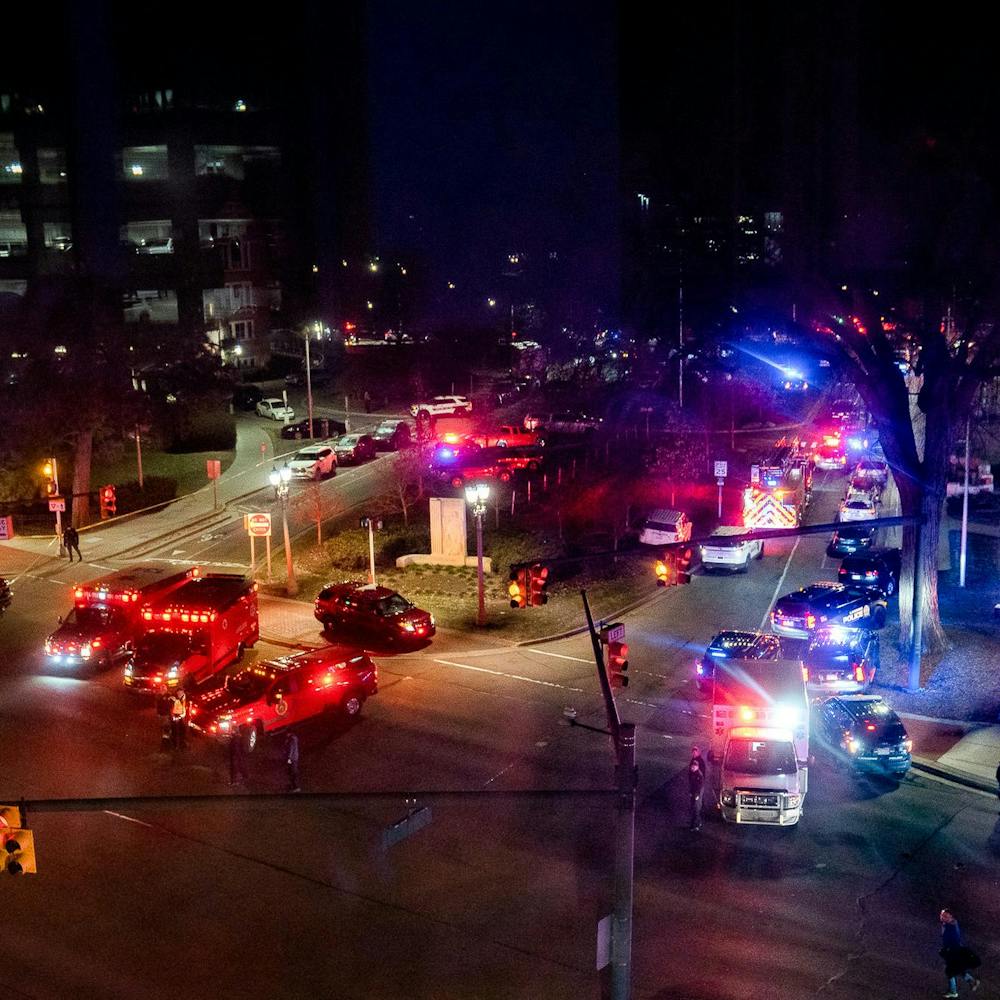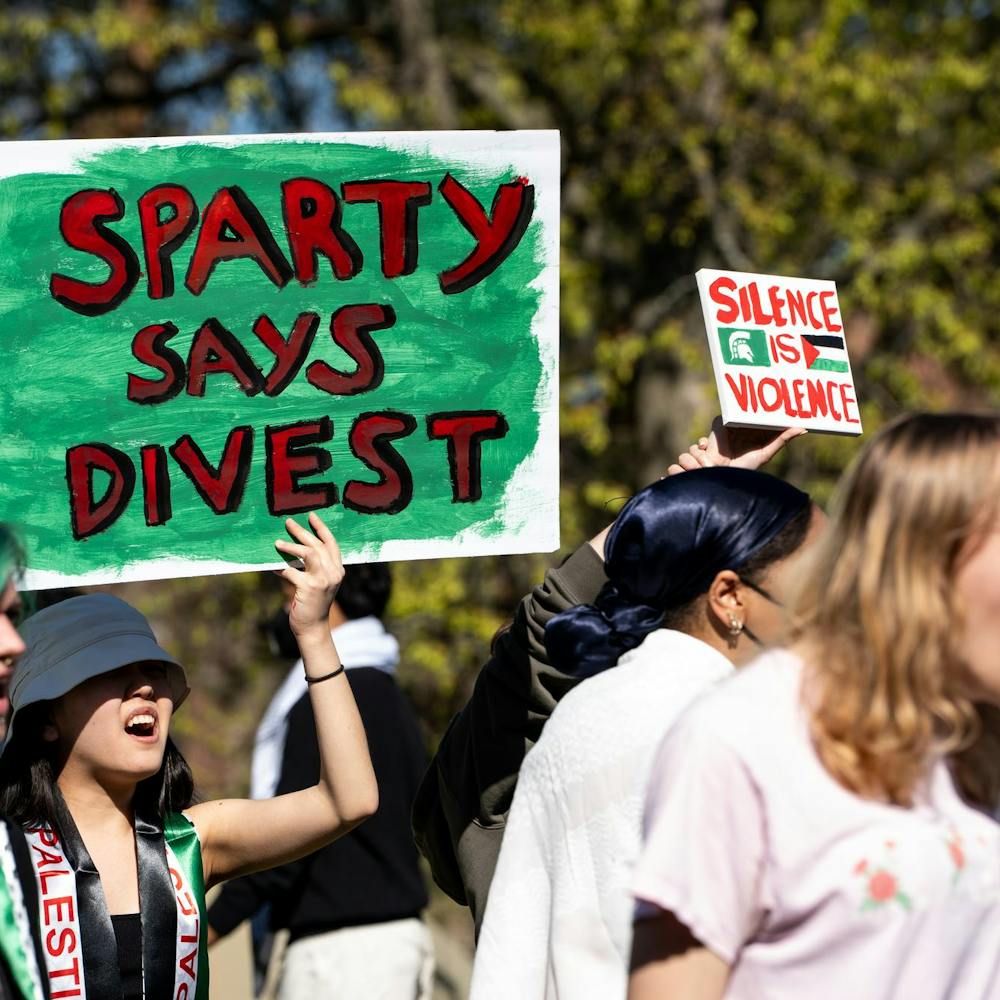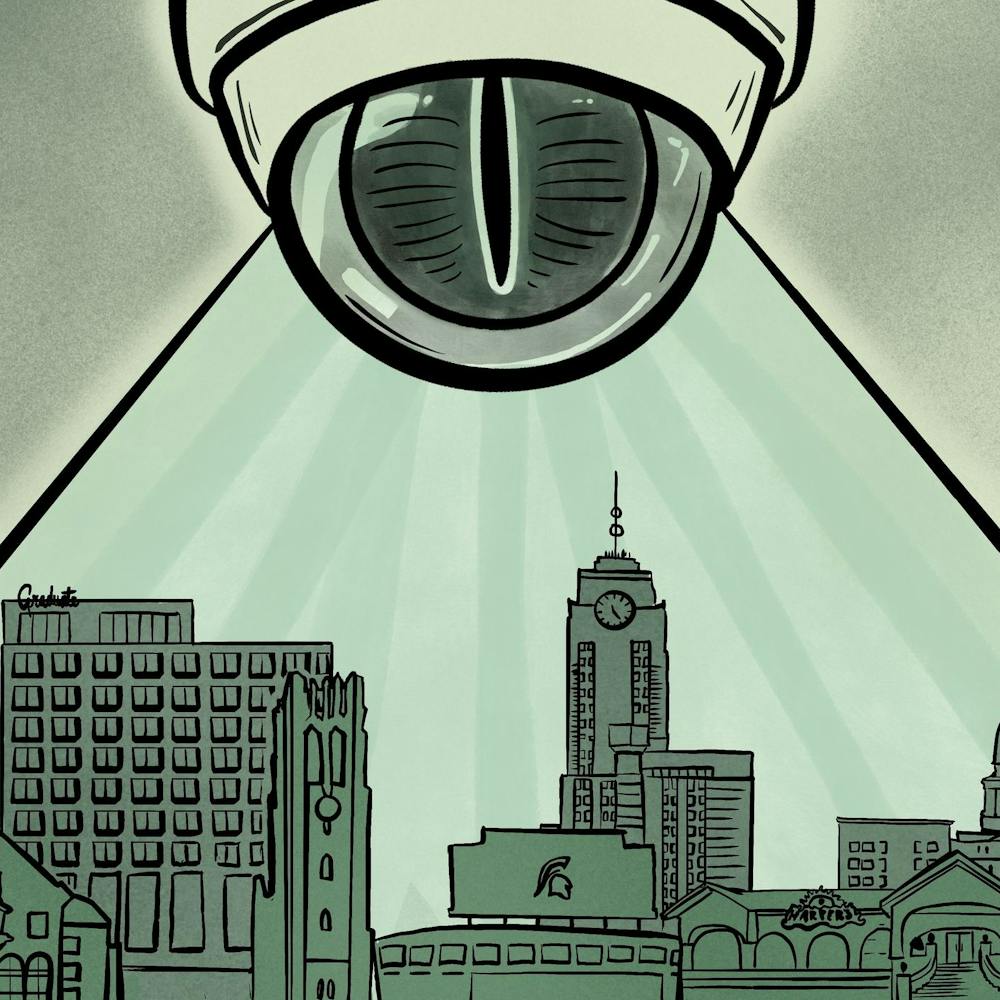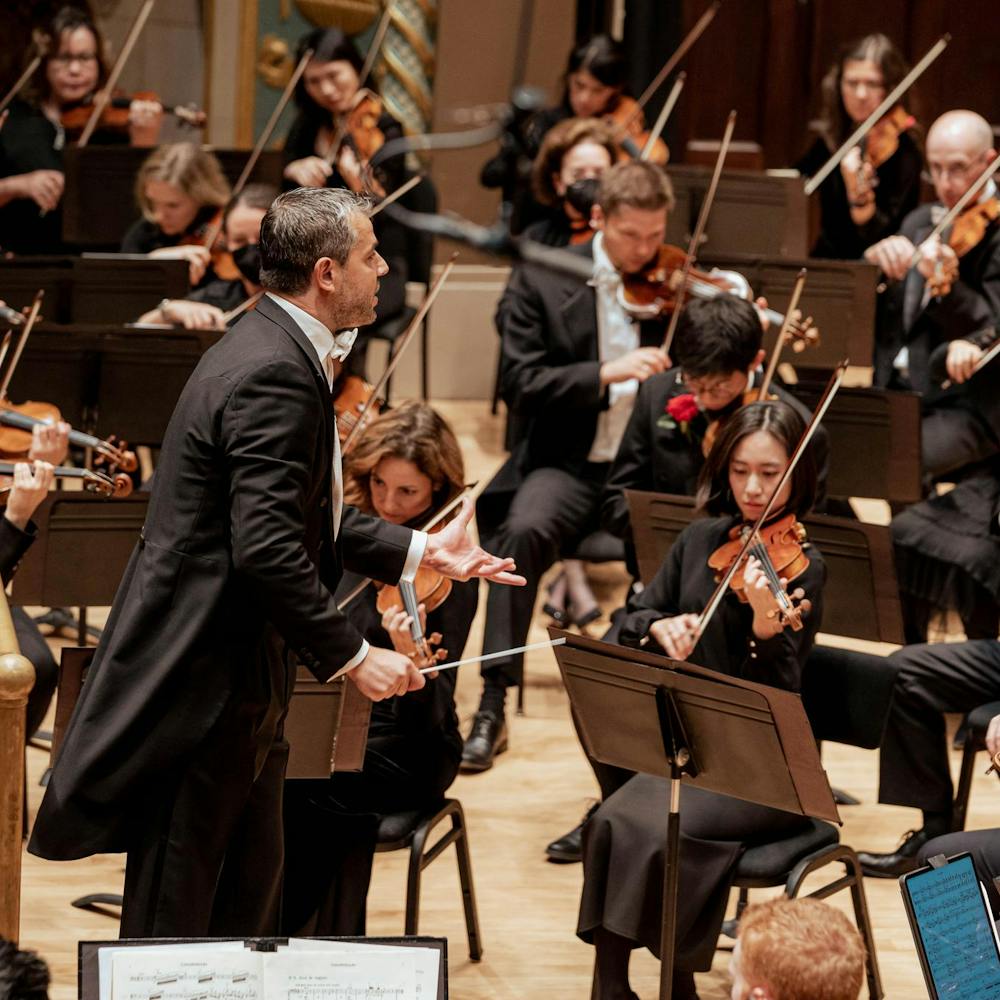A look around the locker room tells the whole story.
The members of the MSU men's basketball team are a social swarm — laughing, telling stupid jokes and trying to distract each other during interviews.
"This team's as close as any team I've ever been a part of," junior guard Drew Neitzel said.
It seems normal — except that a year ago, it wasn't. Last season, the place was often detached and businesslike, as a team that was ranked No. 1 by some in the preseason struggled mightily to live up to the expectations.
"We were frustrated with the overall season, the way it ended," Neitzel said. "We underachieved."
The transformation began the day MSU was knocked out of the NCAA Tournament, when head coach Tom Izzo stressed a greater need for communication among players.
It has been an ongoing process ever since, as the Spartans have compensated for a lack of talent by discovering the most secret formula in all of sports — good team chemistry.
"When you have players that understand they're not as great," Izzo said, "they realize that the group has to get it done a little bit more."
You wouldn't know it by looking at a box score, but that new dynamic, as much as anything else, is the reason why this year's Spartans are playing beyond everyone's expectations.
"The people that put on this jersey every day — they're the only ones that really know what goes on, how hard it is, how to manage things," sophomore forward Marquise Gray said.
"We're all we got."
'We were together, but we weren't'
It almost defied logic.
Last year's Spartans featured Maurice Ager, Shannon Brown and Paul Davis, arguably the most talented trio of teammates in the country. Those three combined for 54 points a game and are now each making a comfortable living in the NBA.
But for some reason, something never quite clicked. On the court, the aura of those three towered over everyone, and other players have said they felt pressure to defer to them. Off the court, the cohesiveness wasn't quite there — a group of three or four players would hang out occasionally, but rarely did all of them do something together.
It was a complex and almost unwinnable situation for Izzo. Ager, Brown and Davis already had their NBA tickets punched, and Izzo acknowledges now he didn't push them enough to be the emotional leaders his team needed.
The result was a disappointing 8-8 Big Ten record, an even more disappointing first-round NCAA Tournament exit and an offseason of questions about why the team played as less than the sum of its parts.
"I don't fault anything that went on the last couple years for them — we were in the Final Four one of those years," Izzo said. "But it is a little harder to have guys buy into different things. And I still say some of that was injuries and our schedule and there were a lot of things that played a part in that team. But I think some of it was Tom Izzo, too, and I take the blame for that. It's not the players. They'll do what we demand for the most part, and I'm just not sure I was as demanding."
The increasing impersonality wasn't a new — or even local — trend.
"I blame it on the computer age," Izzo said. "Everybody's just hacking away and listening to those iPods instead of communicating with people.
"We had more guys that were individual — that doesn't mean selfish-individual, they were just that makeup. Well, most teams are that makeup, and you always need somebody to rally them together."
Changing of the guards
Enter Neitzel and sophomore guard Travis Walton — who were voted co-captains in the offseason and, freed from the shadow of the Big Three — immediately implemented an ambitious social agenda. When the Spartans weren't practicing during the summer, those two made sure they were doing something else as a unit.
They went bowling, barbecued at each other's houses and went to the movie theater together — they saw "Norbit" when it came out last month.
Once the school year started, they had breakfast together every morning at Case Hall, and for sophomore center Idong Ibok's birthday last month, everyone chipped in to get him his first pair of Air Jordan sneakers.
Those might seem like basic social building blocks, but the players say they were much less common last season. The impact they've had on this team is inescapable.
"Last year, it was groups. This year," Gray said, clasping his fingers together, "it's more like everybody's always with everybody."
That's been reflected on the court, where the overachieving Spartans have scrapped to a 21-9 record and are on the brink of their 10th consecutive tournament bid. Izzo calls this a "player-coached" squad, much like the one Mateen Cleaves led to the 2000 National Championship.
"We're more of a team," sophomore forward Goran Suton said. "There's really no superstars on this team — we know Drew's our best player, and everybody's trying to play their roles. Collectively, we're a better group."
And to think, all it took was a little quality time together.
"At first, nobody wanted to do it — 'Man, 7 o'clock breakfast,'" Walton said. "But now that we look back at it, we're like, 'You know what? Seeing someone's ugly face early in the morning — it means a lot.'"





